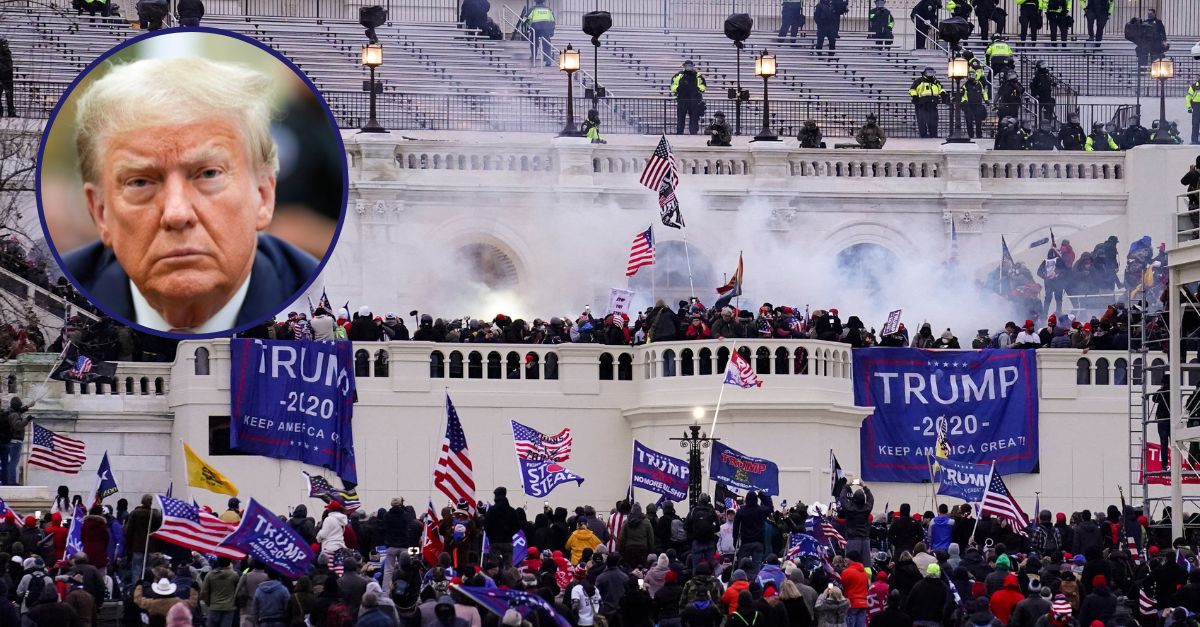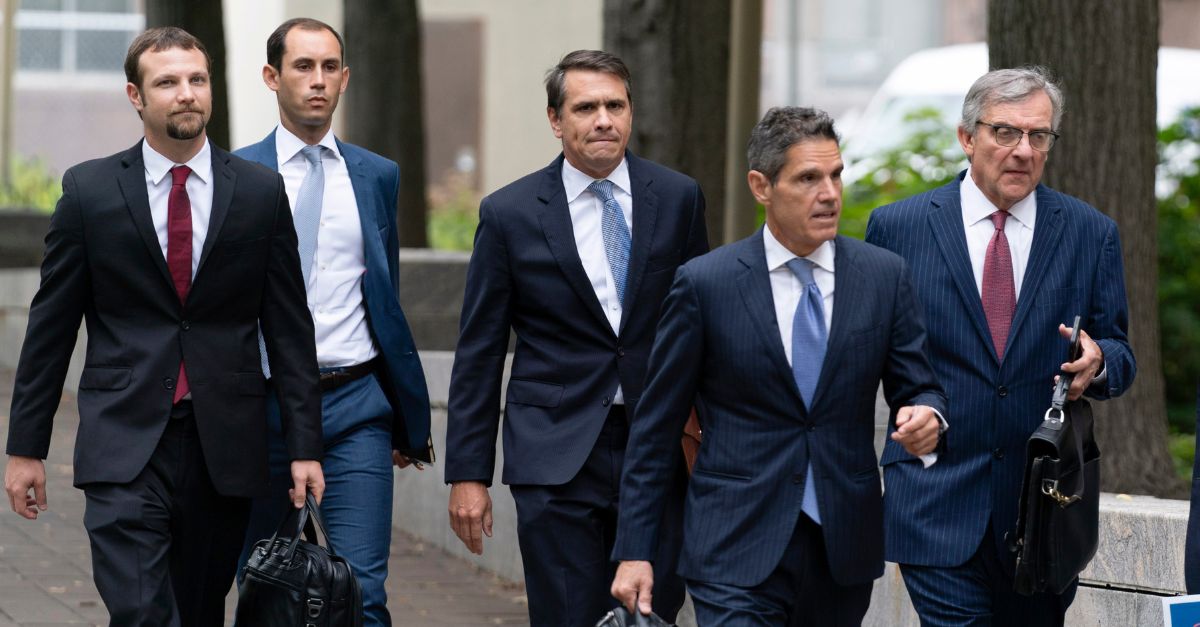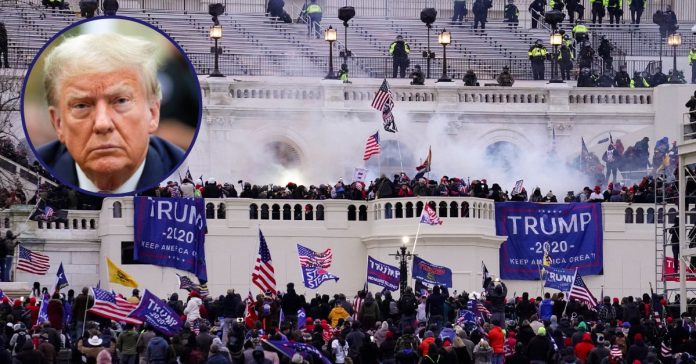
Background: Violent rioters loyal to President Donald Trump storm the Capitol in Washington on Jan. 6, 2021. (AP Photo/John Minchillo, File) Inset: Former President Donald Trump sits in the courtroom before the continuation of his civil business fraud trial at New York Supreme Court, Tuesday, Oct. 3, 2023, in New York. (AP Photo/Seth Wenig, Pool)
On Monday at the U.S. Court of Appeals for the District of Columbia, lawyers for Donald Trump and prosecutors from the special counsel‘s office will argue over whether a narrow gag order imposed and then temporarily lifted on the former president, is warranted in the run up to his Jan. 6 election subversion trial.
For weeks, the former president and prosecutors have parried back and forth over the gag order in the U.S. District Court for the District of Columbia where Judge Tanya Chutkan presides over Trump’s four-count indictment for allegedly conspiring to overturn the results of the 2020 election.
Chutkan set the narrow order less than a month ago, agreeing with prosecutors that Trump should be barred from attacking potential witnesses in the case, as well as from making direct attacks on court staff and prosecutors, but that was roughly it.
Notably, the judge did not specifically name herself as part of Trump’s “no-go” territory despite the fact that one of Trump’s followers, Abigail Jo Shry of Texas, was charged with threatening to kill her in August.
Chutkan did not forbid Trump from disparaging the trial venue of Washington, D.C., despite prosecutors’ concerns that allowing him to denigrate the nation’s capital may hurt the jury pool. Chutkan also did not forbid Trump from openly or publicly criticizing the nature of his charges or the greater apparatus of the Justice Department. With Trump angling for the White House in 2024, Chutkan also left the door open for Trump to criticize the campaign policies of certain individuals who may also appear as witnesses one day at his criminal trial, like former Vice President Mike Pence.

Former President Donald Trump attorneys from left, Gregory Singer, Stephen Weiss, Todd Blanche, John Lauro and Paul Kamenar arrive a federal court, Monday, Aug. 28, 2023, in Washington. (AP Photo/Jose Luis Magana)
Though the order was tailored nearly to a tee, Trump, through a gaggle of attorneys including John Lauro, John Sauer, Greg Singer and Todd Blanche, balked anyway. The order she imposed in mid-October was a violation of Trump’s First Amendment right and a politically-charged attempt to “silence” him, they argued. Special counsel, in response, has called these assertions “scattershot” attempts that have mostly relied on the former president’s misguided theory that he is above the rule of law.
When Trump filed his appeal to the gag order, the court temporarily lifted it.
Now, the three-judge panel at the appellate court will decide what’s next. It is unclear how long it will take for them to render a ruling. And trickier still is trying to assess what will happen if the gag is reinforced but the former president fails to heed it. In New York, Trump has been hit with fines for violating a gag order in his civil fraud case, primarily for making ugly and baseless accusations about a court clerk there.
In the Washington, D.C., case, Trump has mostly focused his ire on potential witnesses. Besides Pence, prosecutors have pointed out Trump’s bellicose calls on social media about General Mark Milley, the former chairman of the Joint Chiefs of Staff, who Trump has suggested he should be executed for his “betrayal” of loyalty.
Ahead of the appellate argument Monday, an amicus brief was filed on Trump’s behalf from the America First Legal Foundation, a far-right leaning organization headed by Stephen Miller, Trump’s former senior adviser. In its 26-page brief primed for the appeals fight, the foundation contends that Trump’s role as a political candidate in 2024 makes the narrow gag order Chutkan imposed not just a a First Amendment problem but a “separation of powers” issue.
The foundation claims that Trump’s indictment was politically motivated and that it was a “purely executive” decision “made by political actors at the apex of the executive branch” to indict him because President Joe Biden appointed Attorney General Merrick Garland and Garland, in turn, as is his duty as Attorney General, appointed a special counsel, Jack Smith.
What the foundation’s brief appears to flatly ignore in its dozen of pages is that a grand jury composed of ordinary citizens voted to indict Trump.
As arguments get underway Monday, both prosecutors and defense attorneys will have roughly 20 to 30 minutes to make their case.
Trump has pleaded not guilty to all of the charges in Washington, D.C. He also faces indictments in Georgia, Florida, and New York.
Have a tip we should know? [email protected]

